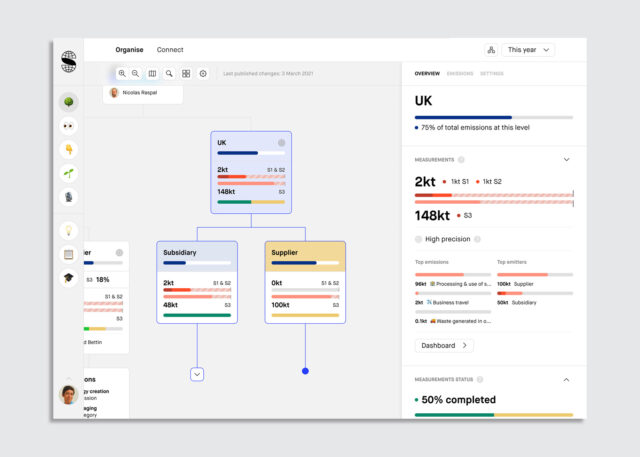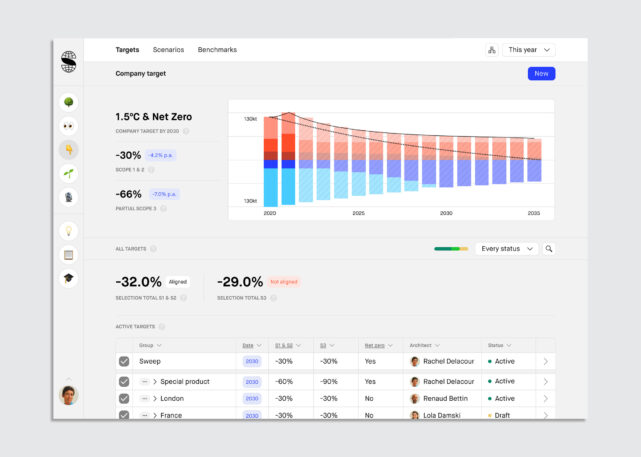You’ve likely heard of “forever chemicals,” but at the carbon-tracking software company Sweep, cofounder and CEO Rachel Delacour has coined a concept that she calls “forever companies.” Companies that fit this title are scaling with the future—and, especially, with climate impact—in mind.
“It’s your mandate [as a CEO] to put your company on track to be a forever company,” Delacour says. “You are paid for that.”
Sweep’s software is designed to help companies start down that path. Understanding how to assess and track carbon emissions can be a barrier for many business leaders, especially given the number of variables that contribute to an overall carbon footprint. That’s where Sweep comes in.

By using data to map carbon emissions, Delacour says Sweep is able to “mask the complexity” of that process for businesses, allowing them to more easily visualize their climate impact. In this week’s Leaders in Innovation podcast, Delacour explains why this process is so critical. To start, she believes that nature needs to be understood as an asset class in today’s business world.
“[Considering nature] is at the core of the differentiators of a modern business,” Delacour says. “It’s a competitive advantage to understand all this because there is the regulatory threat, there is the reputational threat.”
She adds that resistance to becoming a forever company is similar to resistance that once persisted toward digital transformation: “I’m seeing the same pattern 15 years later when it comes to the transition to the low-carbon economy. I can see businesses telling me, ‘Oh, we have time, and this regulation coming, I’m not really sure.’ You know what? It’s more than penalties. It’ll impact your top line, your revenue, because your customers won’t want to contract with a supplier that is not clean when it comes to ESG data.”

And while working to reduce carbon emissions might be expensive in the short term, Delacour argues that those who invest now will benefit in the long term.
“It costs you today to reorganize your company, to be sure that you’re transitioning and understanding that you need the technology strategy within your climate strategy,” Delacour says. “But it’ll cost you a fortune tomorrow if you are late because you will have to organize this in an even shorter amount of time.”

Constraints as opportunity
In the European Union, where Sweep is based, companies are regulated more strictly on emissions and sustainability compared to American companies. As recently as January 5, the EU passed the Corporate Sustainability Reporting Directive, requiring almost 50,000 companies to provide comprehensive breakdowns of their sustainability performance. The EU’s climate targets are bound to have international ripple effects, including holding non-European companies to higher sustainability standards.
Delacour sees these regulatory constraints as an opportunity for companies to get creative in building better business models. Ultimately, she says, making climate progress will require a joint effort among many groups.
“It’s time for coalition. It’s not just time for Sweep only,” Delacour says. “I would love to say that I am the only one to have the whole solution. I’m part of the solution because I am the one who has the best technology to oil that collective climate action. But in the end, we all need to evangelize and, please, it has to be science-based.”
Listen to the full conversation between Rachel Delacour and James Vincent on this week’s Leaders in Innovation podcast. Subscribe on Apple Podcasts, Stitcher, Spotify, or wherever you get your podcasts.
